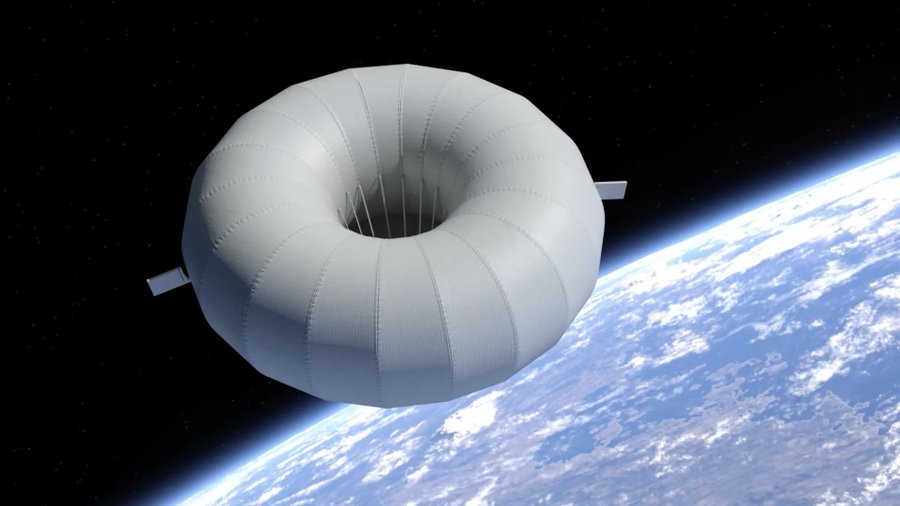The Sky Sports channel of the subscription television (TV) broadcaster, BSkyB, which usually broadcasts to its viewers via the SES satellite constellation, has acquired exclusive British television rights to Formula One (Formula 1) motor racing in a six year deal from 2019 onwards. The news is a depressing announcement for many as it marks yet another previously free-to-view televised sport that will now have to be paid for.
The move is viewed by the sport’s experts as Formula 1 turning its back on the mass TV market and its world advertising revenue, in favour of the subscription revenue model. This trend was already evident in Europe. For while Formula 1 is free to watch in Germany, in France and Spain, the coverage is behind a paywall. While the increasingly boring nature of the race events is a factor, it is the increasing use of these paywalls which is thought to be the main reason behind the loss of Formula 1 motor racing television audiences.
Nevertheless, while the sport has been in decline since it became all too technical and predictable, and with too many races, nevertheless, for diehard fans it still commands a keen interest. Formula 1 Grand Prix races remain the third most watched sports championship events in the world, behind the Olympic Games and the FIFA World Cup, and a major driver (excuse the pun) for live satellite television relays and broadcasts.
The fan base is especially strong in the UK as it was a “sitting down sport” which the British are famously good at. So now to see these events live on television, British F1 fans will now have to pay, whereas before they did not. Anger is growing not just within the sports UK fan base, the Grand Prix drivers themselves are now openly challenging the Formula 1’s leadership over its recent decision making.
Channel 4 chose the wrong horse when it went for Formula 1
The current Formula 1 free-to-air broadcaster, Channel 4, will be licking its wounds and putting a brave face on the situation. It will now know that it picked the wrong horse when it gave up its UK horse racing TV coverage rights from 2017 onwards in order to fund its current Formula 1 coverage contract which it took over from the cash-strapped BBC from this year. Channel 4 will thus now become the last ever terrestrial free-to-air provider of Formula 1 coverage when this contract runs out at the end of 2018.
In reality, of course, Channel 4 only has a share of live coverage. Yes – and you probably know this already – it currently has to share this with Sky allowing Channel 4 to provide live coverage of certain races only, and not usually the best ones (Monaco comes to mind) and not on an exclusive basis.
Sky Sports will thus, from 2019 onwards, not only have domination of all of the live TV coverage, it will also have the rights to the recorded highlights shows as well, although it may be in its best interests public relations-wise to sell these on to a terrestrial free-to-air broadcaster like the BBC, ITV or Channel 4. The only concession for the Formula 1 live broadcasts is that the British Grand Prix will be shown on a free-to-air television channel – probably Sky’s Pick TV terrestrial channel or perhaps on the BBC or ITV.
Another sport falls to the Sky TV empire
Sky Sports reportedly paid £1 billion for the new Formula 1 deal. The move represents yet another sport which has succumbed to the subscription money temptation. While you can hardly blame the members of each of these sports’ governing bodies for wanting to do the best for their sports (Sky money allows funds to be made available for grass roots participation and the training of youngsters) even if some of the cash inevitably finds its way to benefiting them via higher salaries, it has reached the point where Sky’s satellite TV operation now dominates MOST major sporting events broadcast in the UK.
For example, in the UK, Sky Sports carries most Premier League football (soccer) including some home nation internationals, cricket (including the England team’s test matches), Formula 1 motor racing, some Rugby, the Ryder Cup and all of world’s golfing majors except the US Masters (the British Open has fallen to Sky from 2016 onwards), most grand slam tennis tournaments except Wimbledon, and boxing (the latter often involving a pay-per-view surcharge).
For UK citizens, to gain access to coverage of most of these major sports which used to be free on terrestrial television now requires them to take out an annual Sky Sports channels’ subscription which is currently set at more that £550 per year (plus £200 more if you want it in high definition) – a sum that few poor people can really afford. Thankfully, the Olympics, the FIFA World Cup and most international rugby and horseracing remains free – well, for now at least.
The UK government really should do something about Sky’s domination of TV Sport
This writer actually has no objections to Sky television’s hold of top line Premier League football even if it does lead to footballers being totally overpaid. Let’s face it, there was a probably need for these live match channels. However, it was when the outfit bid to take over other sports, it was then that he began to resent Sky. And he is not alone.
The alarm bells started to ring for many when cricket home test matches fell to this paid-for television upstart after being removed from government’s own “protected sporting event” terrestrial TV list in 1998. At the time, such was the power of Rupert Murdoch’s media empire (the family holds a major interest in BSkyB as well as in several newspapers) that the then-new Labour administration, led by the now very much unloved Tony Blair, were keen not to turn Sky and Rupert Murdoch down.
Since then, the Sky outfit has systematically managed to annex most of the other major sports (Vladimir Putin would be proud), meaning that the “man-on-the-Clapham omnibus” now has to have a Sky Sports subscription to see them. The only problem that Sky has really had to face was when a competitor, in the form of BT’s own operation, outbid Sky for some the Premier League football matches. This loss might have even been a blessing for Sky as it left the firm with money to diversify and bid for other sports.
As such it really is time for Her Majesty’s government to really do something. It should start with putting Cricket test matches and the golfing majors and the best of the Formula 1 Grand Prix back on the “protected” list.
No more Monaco Grand Prix for this writer
As he finishes ranting against the “evil Sky empire”, you correspondent admits that he will miss watching the glamour of the Monaco Grand Prix (while he has been there twice he can’t really afford to go in person), and perhaps the long-established Belgium, Italian and Japanese Grand Prix races as well, he will not be buying Sky Sport’s very expensive and notoriously difficult-to-cancel subscription.
Instead, your correspondent will have to look back to his TV memories of his motor racing heroes like Graham Hill (who he just about remembers), Jackie Stuart, Nigel Mansell and Ayton Senna, who skilfully fought it out on the tracks under the BBC’s very basic coverage with crackly commentaries from the likes of Raymond Baxter and Murray Walker. For while it was not realised then but the period 1965-1990 was perhaps the sport’s golden era on TV: when satellites made outside broadcasts of the sport truly viable; when motor racing had technical innovation but was still simple enough to be exciting; when safety was slowly improved but still allowed proper races to be run in the wet; and when hot-blooded but skilful stars like Senna or James Hunt could still make a name for themselves on the track by scoring wins in less-than-the-best machinery.
Perhaps in future, UK governments will actually do something about Sky’s domination of televised sport, while Formula 1’s administrators might actually work out how to make the motor racing more exciting and more meaningful.
In the meantime, Sky can keep those all-too-many, boringly overly predictable, confusing and strategy-dominated, safety car and pit-stop interrupted processions that currently masquerade as Formula 1 Grand Prix races, to themselves, thank you very much.
For, as it kills off the Formula 1 goose that once laid so many golden eggs, Sky’s advertising catchphrase “believe in better”, is wearing just a little bit thin at the moment.







